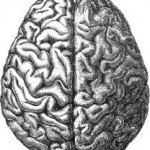Does Mindfulness Work?
Posted on September 3, 2015 by Robert Ringer
In this day and age of ISIS, police assassinations, criminals in public office, riots on demand, and the moral equalization of every conceivable kind of “lifestyle,” it’s no wonder that mindfulness has become an increasingly popular technique.
The practice of mindfulness has its roots in Buddhism, which is always a good sign. Moreover, Thoreau, Emerson, and Whitman all subscribed to mindfulness, and when it comes to endorsements, you can’t do much better than that.
Oversimplified, mindfulness is a state of active, open, intentional attention on the present. Mindfulness is the only intentional activity where you aren’t trying to improve yourself or get anywhere. The only intent is to be aware of where you already are.
That’s why you should never look at mindfulness as a goal or destination. Goals are about the future. A destination is a place you want to reach. But when you’re mindful of the present, you’re already where you want to be, both mentally and physically.
There are two kinds of mindfulness. One is formal mindfulness, the practice of sustained attention on the body, breath, or other sensations. In other words, you consciously concentrate on, say, your breathing. You purposely try to stay focused on every inhalation and every exhalation.
Informal mindfulness, on the other hand, is the moment-by-moment attention to your life, which involves two components. The first is regulating your attention so it’s focused on an immediate experience. The second component is developing an attitude of curiosity, openness, and acceptance.
To accomplish this, you have to consciously work to stabilize your mind, because the mind is inherently distractible. Without consciously controlling it, your mind will run wild with petty thoughts, worries, social pressures, anxiety, depression, and fears of rejection, disappointment, and financial failure. But perhaps worst of all is the horrid habit of overthinking. Overthinking creates stress, stifles action, and probably kills.
The key to mindfulness is to focus less on what’s going on in your mind rather than what’s going on around you. Mindfulness advocates like to refer to this as “be here, now.” It would be impossible to sum it up better than with these three words.
Thus, the essence of mindfulness is to think in terms of this moment and this day. After all, there’s no guarantee that there will be another moment or another day. Everything about the future is hypothetical, at best. That’s why “What if?” is the enemy of mindfulness. When you practice mindfulness, you put aside all “What ifs?” and focus on what is — right now, this second.
Like everything of value, mindfulness is not easy — especially at first. It’s an enormous challenge to suspend all thoughts of past, future, and present concerns. Also, part and parcel to this practice is not being nonjudgmental about such concerns. Easy to say, but very tough to do.
I find that the best way to accomplish this is to not categorize things in terms of good or bad. I try (but do not always succeed) to think of most things in terms of “they just are,” and leave it at that. When we judge something as “bad,” it’s presumptuous, because we usually have no idea what the final outcome will be. We’re simply assigning a negative label to it, a label which may prove to be incorrect down the road.
For example, why does death have to be a bad thing? Maybe it’s a good thing? Who really knows? The only thing we know for certain is that death has visited every person who has ever lived on this earth. No matter how much we belabor death, it just is.
It’s important to understand that mindfulness is not about repressing stressful thoughts. Repression doesn’t work, because repressed thoughts build even more stress under the surface. The best approach to stressful thoughts is to neither embrace them nor push them away. Just let them alone and focus on your life … in this moment … in this place … on this day.
At its worst, the mind is on autopilot, a condition with which I’ve had more than my share of my bouts. By autopilot, I mean that you’re “zoned out.” As an example, have you ever done something like finished your shower, then not being able to remember if you washed your hair? What happened was that you zoned out while washing your hair (assuming that you did, indeed, wash it), because you were absorbed with other thoughts.
This can happen with brushing your teeth, taking your vitamins, and any one of an infinite number of other things that are part of your normal routine. When you zone out, you aren’t present, which is why you aren’t able to recall if you’ve done any these things.
Perhaps an even bigger challenge is keeping stress-producing external forces at bay. In this regard, I am reminded of a late friend of mine, Vern, who was a mentor to me when I was in my early twenties. Vern owned a successful life-insurance agency and, though he was a very low-key guy, he was a master at finding unconventional ways to motivate his agents.
One of the many unique things I remember about Vern was how he handled his mail. I happened to be in his office one day when his secretary put a stack of new mail on his desk. He quickly scanned through the pile, then picked it up and put it in the middle drawer on the left side of his desk.
It was a deep drawer, and it was filled with unopened mail. I asked him why he kept all his mail unopened and in a desk drawer, and his answer was classic Vern: “If you open even a few pieces of mail a day and read it, you’re not only wasting valuable time, but a lot of the mail you read will stress you. What I find is that if I just throw it all in a drawer, over time 99.99 percent of it will take care of itself.”
Vern was the calmest, most peaceful guy I’ve ever known. Whatever it was he was doing, it clearly worked for him. His handling of his mail was a metaphor for his whole life. He believed that if you just give everything to the universe, the universe will take care of it. Putting his mail in his desk drawer was his way of giving it to the universe.
I didn’t give mindfulness much thought until a couple of years ago, because it sounded a bit hokey to me. But as I read up on it, I became more and more interested in it, and I concluded that it’s not so much that “the universe” solves your problems; it’s that you surrender your problems to the universe. Huge difference.
Why does this work? Because most problems aren’t really problems at all. We just make them so in our minds. As Mark Twain put once it, “I have known a great many troubles, but most of them never happened.” So when you give problems to the universe, you’re simply getting rid of the seeds that have the potential to sprout into problems. The universe is a big place, so it can deal with all the seeds you can send its way.
With all this in mind, the big question is: Are mindfulness adherents correct when they claim that it can reduce stress, lower blood pressure, strengthen your immune system, and add years to your life? And the not-so-big answer is: I don’t know. I’m not an expert at this. But common sense tells me that it sounds logical. So I’m in. Maybe not yet all in just yet, but in.
I’ll let you know in a few years how well it’s working out for me. In the meantime, you might want to read up on it. The Internet is saturated with material about mindfulness.
In the meantime, you’ll have to excuse me. I have some thought-trash I have tp throw out to the universe. It’s pretty nice to have a 24-hour trash collection service at your disposal. Best of all, you have nothing to lose, because it’s free!










